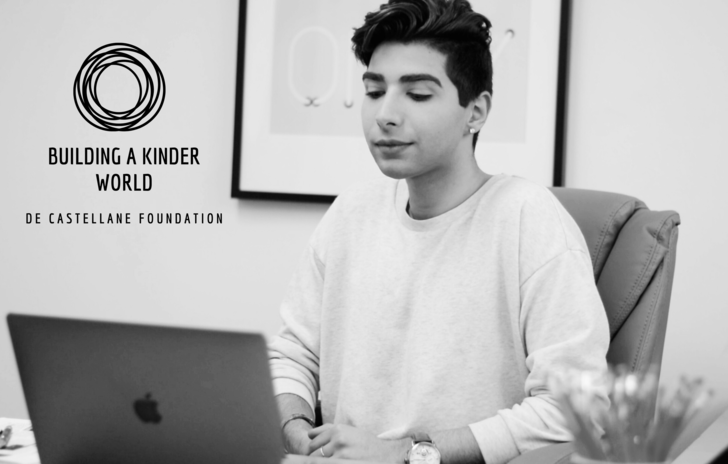In the past couple of weeks, all we read and talk about has been about the deadly virus. They call it COVID-19. It has consumed the news, and some people even made jokes that they've forgotten what we talked about before the infection. But all jokes aside, with lockdowns, closed bars and restaurants, and empty supermarkets, our lives have changed as we knew it.
Hordes of shoppers flooded stores across the nation and emptied shelves, looking to stockpile groceries and household items to prepare for uncharted territory, in response to the virus.
All this change can be very overwhelming and stressful. Sometimes even scary, especially when we see our fears getting reinforced in the outside world. Therefore, we decided to see how Millennials are feeling and coping with this Crisis.
We sat down with Daniel de Castellane, a millennial, and president of The de Castellane Foundation to talk about the COVID-19 Crisis, and how the Millennials feel about it.
-Q: Daniel, it has been more than a week since President Trump declared a National Emergency, what does this mean to you?
"What this means is that up to 50 billion dollars in funds could be freed up to help fight the pandemic. In addition, the white house announced a series of strict policies such as a travel restriction on Europe to combat the virus outbreak."
-Q: How do you think your generation has been affected by the virus and the events surrounding it?
-A: "I was talking to a friend, and the most accurate description I can give would be that we feel caged.
Obviously, we never thought that we would have to deal with anything like this. And even though this is stressful, everyone is still trying their best to live life as normal as possible. With that being said, I think it has affected our spending habits, and we're more mindful, and some are even stressed about their jobs and financial security."
-Q: How are you affected by the quarantine? how are you coping with it?
-A: " I, like many others, have been affected by it, and work from home now. We closed our office last week and instructed all our personnel to work from home. During this time, many of us may be feeling anxious, overwhelmed, sad, stressed, confused, lonely, or all of these things at the same time. I've found these tips to help me cope:
- Stick to routines or start a new one; get up or go to sleep at a regular time. Get dressed. Exercise...
- Stay connected; have video chats with your family, friends, and colleagues. Open up about how you're feeling and ask others about how they're feeling. Check-in with colleagues regularly, especially those who are alone.
- Engage in hobbies and things you enjoy; read, cook, do puzzles.
- Set up a "worry window," write down all your worries throughout the day, and give yourself permission to think about them during a specific time of day.
- Use meditation and mindfulness apps.
- Keep a gratitude journal by writing down things you're grateful for every day. "
-Q: Are you worried about getting the virus?
-A: "Of course coronavirus is a health issue, and we're all at risk of getting it. Therefore, we should all practice common sense, such as social distancing and washing our hands. But what worries me more than the virus is how the society is responding to COVID-19."
-Q: In your opinion, what makes COVID-19 significant.
-A: " I think the fact that it's so global, and also the fact that we're so globally connected thanks to the internet and all the social media apps. The information is being transferred at a rate that we've never seen in history."
-Q: Lastly, what is the most important thing anyone can do at this time?
-A: “I always say common practice sense, and by that, I mean wash your hands, practice social distancing, and follow your local health advisories. But on top of that, make sure the information you share on social media comes from reliable sources like WHO (the Worlds Health Organization), and the CDC (the Center for Disease Control). I've seen many articles claiming remedies, and tests to treat COVID-19, none of which are based on scientific evidence, and this can be really detrimental to public health.”
About the de Castellane Foundation:
The de Castellane Foundation was created with the idea of helping people grow out of poverty, in 2019, with the supervision of Daniel de Castellane. In addition to fighting poverty, the foundation has put its focus on studying compassion in our society and developing new ways to promote kindness within communities. In an effort to do so, we are currently teaming up with renowned Universities, in order to look into sociological and psychological factors that can help our cause.
For more information,on please call: 949 409 4703 or email: [email protected]
Release ID: 12982

